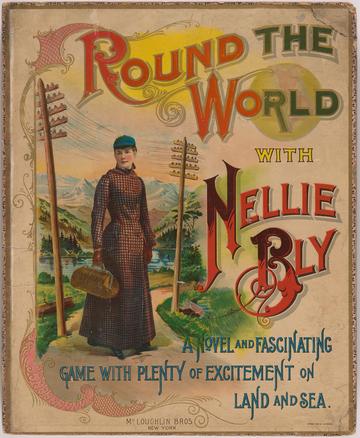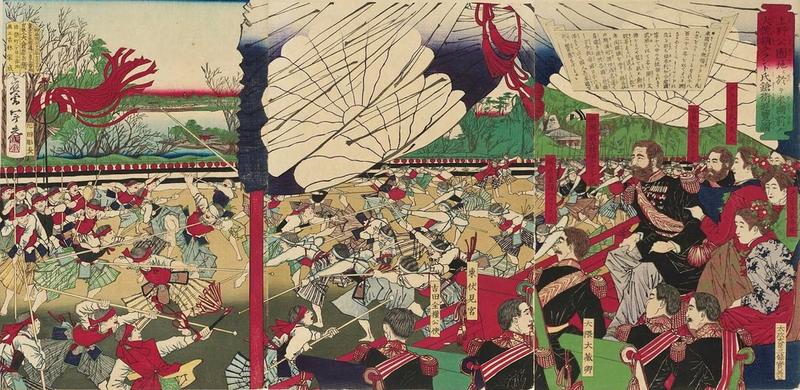On Tour: Statecraft and the Politics of the “World Tour” across Empires
The final third of the nineteenth century was an era of the mass consumption of tall tales of global adventure from Nellie Bly’s seventy-two-day circumnavigation of the globe in 1889 to Joshua Slocum’s first solo circumnavigation of the earth by sail between 1895 and 1898. But, outside of mass popular adventure, world touring became a practice of knowledge-making, network-building, and national and imperial statecraft around the world.
This project examines case studies of world tours despatched from nation states, empires, and reform movements to understand this phenomenon. It examines the diversity of world touring as a diplomatic art, utilising it as a method for crossing national historiographies and rethinking how encounters across borders shaped societies around the world, and seeks to develop new vantages from which to understand the historical phenomenon of globalisation.
The project, which received generous support from RAI partner the Kinder Institute on Constitutional Democracy, incorporated teaching, student outreach and access, and research into interlocking activities:

In June 2024 and 2025, the RAI hosted scholars for the UK, USA, and Australia to workshop papers around this theme. Each paper took a case study of a world tour, ranging from the high political such as Lord Rosebury’s visits to the United States and Australia in 1883, to the campaigns of suffrage activists and social creditors in first decades of the twentieth century, through which to interrogate the “world tour” as a phenomenon of the connecting world.
The shared aim of the workshop was not to be prescriptive about what counts as a typical world tour, but to recognise it as a specific form of imperial mobility and to interrogate its flexibility as a model of engagement with the world. Across the essays two interlocking themes nevertheless standout. First, the ambassadorial function of world touring in the armature of statecraft and political careering; and second, that world tours embodied practices of mobile knowledge-making central to legitimizing claims to knowledge and expertise of world events for both individuals and states.
The resulting essays are being collected for a journal special issue, edited by Prof. Stephen Tuffnell (RAI Senior Research Fellow) with Robert Fletcher (Kinder Institute, University of Missouri) and Dr. Benjamin Montford (Australian Catholic University).
Participants at the second workshop included students from the Kinder Institute's MA in Atlantic History and Politics as part of a four-week Oxford Summer School in which they participated in classes with Prof. Robert Fletcher on global history through the practice of world touring, for which their final assessment as a submitted piece of coursework examining a world tour.
UNIQ+ Graduate Internships
Through July and August 2025, the project hosted four graduate interns on the UNIQ+ Graduate Access programme. Interns participated in the July workshop and joined students from the University of Missouri’s summer school in class discussion. Under the supervision of Prof. Tuffnell each intern developed a case study of a world tour or some aspect of global mobility using archival collections available in the Bodleian and online, on some aspect of world touring in the late-nineteenth and early-twentieth centuries. The essays have directly informed the framing of the introductory essay to the journal issue above, written by Prof. Tuffnell.
Their essays can be found here:
Karolina Głasek, The Young Ambassadors Tour to Canada, 1928
Isaac Hurley, Around the World with Upton and Grant: Military Touring and Sino-American Relations in the Nineteenth Century
Saniyah Mazhar, Lala Rajput Rai’s Second American Tour
Megan Pothecary, The Wild Goose: A Collection of Ocean Waifs




